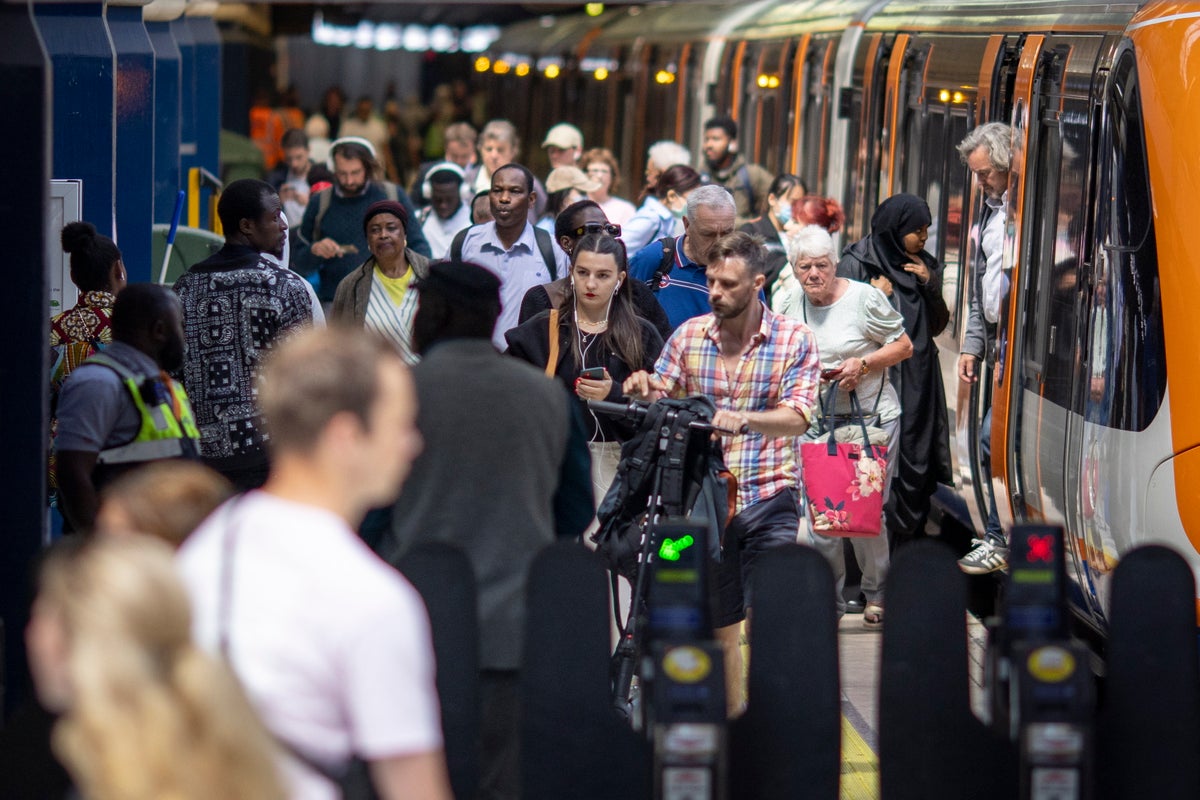
Rail workers are going on strike this week over pay and redundancies, with planned stoppages on Tuesday, Friday, and Saturday expected to cause disruption throughout the week.
As well as avoiding redundancies across the industry, the RMT says workers' wages should keep up with inflation, which has soared to a record 40-year high of 9 per cent.
If they are unsuccessful, the wages of workers on the railway would be set to fall in real terms.
Many workers across the economy with less bargaining power face this prospect in the coming months, but as rail workers have managed to unionise, they are well-placed to try and keep the value of their wages.
The question of how much railway workers earn is quite complicated, particularly in the context of this strike and those participating. As in any industry, different roles and different levels of seniority earn different salaries.
This week's action does not include drivers, who are represented by the Aslef union.
Drivers are some of the most well-paid workers on the railway and earn more than most of their colleagues, reflecting their senior role.
This fact means that figures quoted by the government in the past about how much rail workers earn are misleading.
Grant Shapps, the transport secretary, claimed in parliament that rail workers earn an average of £44,000 a year.
However this figure, which the Office for National Statistics puts more exactly at £43,747 includes workers like drivers who are not going on strike.
It also includes people constructing trains, who are not directly employed by network rail or train operating companies but work for companies like Bombardier or Hitachi. This group also bring up the average, earning on average more than £44,000.
The other categories in the ONS's calculation are rail travel assistants like guards and station staff, who are paid an average of £33,310, and rail construction and maintenance operatives who are paid £34,998.
These two groups constitute a large bulk of the workers going on strike.
Unlike the government, the RMT puts the average salary at £33,000. The union's figures exclude train drivers, who are not going on strike and are represented by a different union, Aslef.
But the RMT also says 10,000 cleaners are represented by the union, alongside other lower-paid staff who are not classified as rail workers in the official statistics despite being included in the dispute.
According to the BBC's Reality Check service, "it seems likely that if you add a number of low-paid staff such as cleaners to the calculation then you could get the average down to about £33,000", once train drivers are also excluded.
Ultimately, however much rail workers earn and whichever figure is taken, they will be seeing a real-terms cut in their pay unless they can negotiate a new pay offer. Unlike most workers they are well-unionised and better placed to resist pay cuts.







